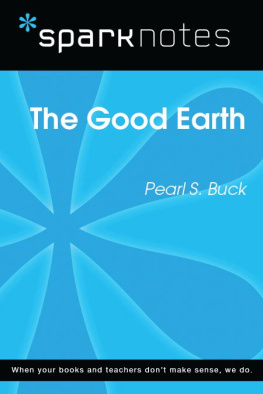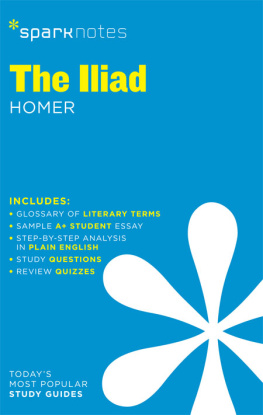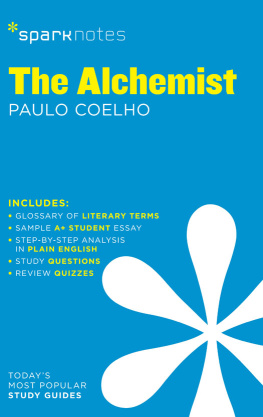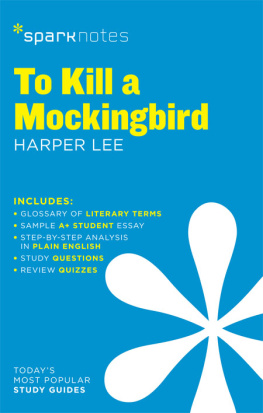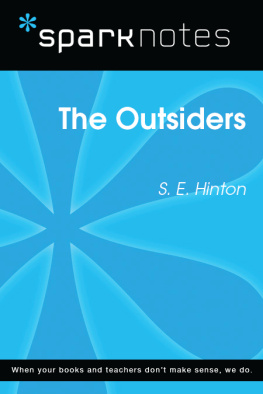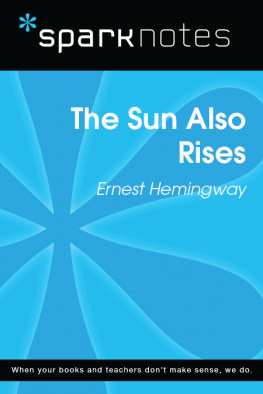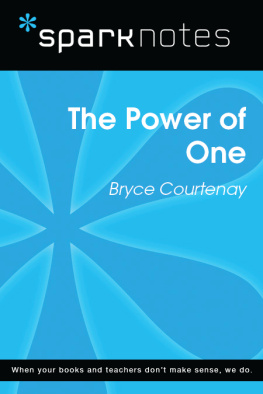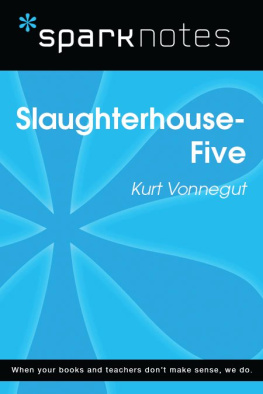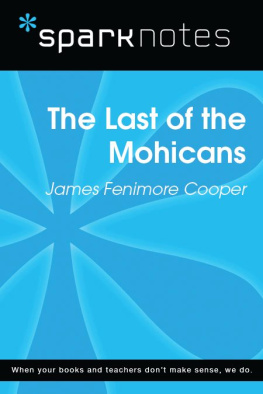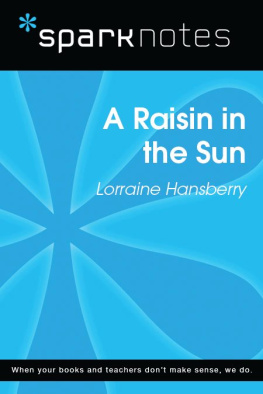The Good Earth
Pearl S. Buck
2003, 2007 by Spark Publishing
This Spark Publishing edition 2014 by SparkNotes LLC, an Affiliate of Barnes & Noble
All rights reserved. No part of this publication may be reproduced, stored in a retrieval system, or transmitted in any form or by any means (including electronic, mechanical, photocopying, recording, or otherwise) without prior written permission from the publisher.
Sparknotes is a registered trademark of SparkNotes LLC
Spark Publishing
A Division of Barnes & Noble
120 Fifth Avenue
New York, NY 10011
www.sparknotes.com /
ISBN-13: 978-1-4114-7531-1
Please submit changes or report errors to www.sparknotes.com/.
10 9 8 7 6 5 4 3 2 1
Context
P earl S. Buck was born in 1892 in Hillsboro, West Virginia, to Absalom and Carie Sydenstricker, two Christian missionaries. When Buck was three months old, her parents took her with them on a mission to China, where they spent most of the next forty years. Buck grew up playing with Chinese children, who referred to her as a foreign devil. Although contempt of the Chinese was common among the families of Western Christian missionaries, Buck never developed that sense of superiority. Since Buck grew up in China, she was able to objectively recognize the absurdities of missionary work. Bucks objectivity is evident in her portrayal of Western missionaries in The Good Earth.
Buck returned to the United States to attend Randolph-Macon Womans College in Lynchburg, Virginia, where she did well academically and achieved some measure of popularity. However, the country of her birth was largely unfamiliar to her, and she felt like a foreigner. After graduating, she returned to China to take care of her ailing mother. In 1917 , she married John Lossing Buck, an agricultural economist and graduate of Cornell. Her first and only biological child, Carol, was born in 1921 . Due to a uterine tumor discovered during the delivery, Buck had to undergo a hysterectomy. Soon after, Buck discovered that her daughter was severely retarded. Almost at the same time, Bucks mother died after a long illness. These misfortunes placed a great deal of strain on Bucks marriage. She divorced her husband in 1935 and married a man named Richard J. Walsh later the same year.
In 1931 , Buck published The Good Earth, her second and best-known book. The novel, a complex moral parable that draws heavily on Bucks firsthand knowledge of Chinese culture, quickly gained an international reputation and won the Pulitzer Prize in 1932 . Over the next few years, Buck wrote two sequels, Sons and A House Divided, but neither was as popular as The Good Earth. Buck also wrote biographies of her parents. Buck was awarded the Nobel Prize for literature in 1938 , mainly in recognition of these biographies and The Good Earth.
Throughout her life, Buck devoted herself to humanitarian causes. She fought constantly on behalf of womens rights. With her husband, Richard Walsh, she founded an adoption agency for children of mixed Asian and American parentage. These children were often outcasts in Asian countries because of their mixed blood and because they were often the out-of-wedlock offspring of American servicemen. Buck also took an active interest in issues as diverse as the lives of immigrants in New York City and the independence movement in India. In addition to these various causes, she was a staunch supporter of free speech and civil liberties. Buck died in 1973 after a long and active life as an activist, a humanitarian, and a writer.
Plot Overview
W ang Lung is a poor young farmer in rural, turn-of-the-century China. During the time in which the novel takes place, Chinese society is showing signs of modernization while remaining deeply connected to ancient traditions and customs. When Wang Lung reaches a marriageable age, his father approaches the powerful local Hwang family to ask if they have a spare slave who could marry his son. The Hwangs agree to sell Wang a -year-old slave named O-lan, who becomes his wife. O-lan and Wang Lung are pleased with each other, although they exchange few words and although Wang is initially disappointed that O-lan does not have bound feet.
Together, Wang Lung and O-lan cultivate a bountiful and profitable harvest from their land. O-lan becomes pregnant, and Wang Lung is overjoyed when O-lans first child is a son. Meanwhile, the powerful Hwang family lives decadentlythe husband is obsessed with women, and the wife is an opium addict. Because of their costly habits, the Hwangs fall on hard times, and Wang Lung is able to purchase a piece of their fertile rice land. He enjoys another profitable harvest, and O-lan gives birth to another son. Wang Lungs new wealth catches the attention of his greedy, lazy uncle. Custom dictates that Wang Lung must show the utmost respect to members of the older generation, especially relatives, so he is forced to loan his uncle money despite knowing that the money will be wasted on drinking and gambling. The Hwang familys finances continue to falter, and the Hwangs sell another tract of land to Wang Lung.
After O-lan gives birth to a daughter, a terrible famine settles on the land. In the midst of this crisis, O-lan gives birth to another daughter. She strangles the second girl because there is not enough food to feed the baby and the rest of the family. Wang Lung is forced to take his family to a southern city for the winter. There, O-lan and the children beg while Wang Lung earns money by transporting people in a rented rickshaw. They earn just enough money to eat. Wang Lung begins to despair of ever making enough money to return to his land. He and O-lan briefly consider selling their surviving daughter as a slave. Eventually, a group of poor and desperate people ransacks a rich mans home, and Wang Lung and O-lan join them. Wang Lung steals a pile of gold coins. With this new wealth, he moves the family back home and purchases a new ox and some seeds. O-lan had stolen some jewels during the looting. Wang Lung allows her to keep two small pearls, but he takes the rest and hurries to buy three hundred acres of Old Master Hwangs land. O-lan gives birth to twins shortly thereafter. The couple realizes that their oldest daughter is severely retarded, but Wang Lung loves the child dearly.
Wang Lung hires laborers to plant and harvest his land. He enjoys several years of profitable harvests and becomes a rich man. When a flood forces him to be idle, he begins to feel restless and bored. He finds fault with O-lans appearance and cruelly criticizes her for having big feet. He becomes obsessed with Lotus, a beautiful, delicate prostitute with bound feet. Eventually, he purchases Lotus to be his concubine. When O-lan becomes terminally ill, Wang Lung regrets his cruel words and comes to appreciate everything his wife has done for him. Meanwhile, to lessen the demands of his uncle and his uncles wife, who have moved their family into his house and continued to exploit his wealth, he tricks them into becoming opium addicts. Eventually, Wang Lung rents the Hwangs house and moves into it with his family, leaving his own house to his uncles family.
After O-lans death, Wang Lungs sons begin to rebel against his plans for their life. They do not want to work as farmers and do not have his devotion to the land. Furthermore, his first and second sons often argue over money, and their wives develop an intense animosity toward one another. In his old age, Wang Lung takes a young slave, Pear Blossom, as a concubine. She promises to care for his retarded daughter after his death. In time, Wang Lung is surrounded by grandchildren, but he is also surrounded by petty family disagreements. By the end of the novel, despite Wangs passionate dissent, his sons plan to sell the family land and divide the money among themselves, signaling their final break with the land that made them wealthy.

